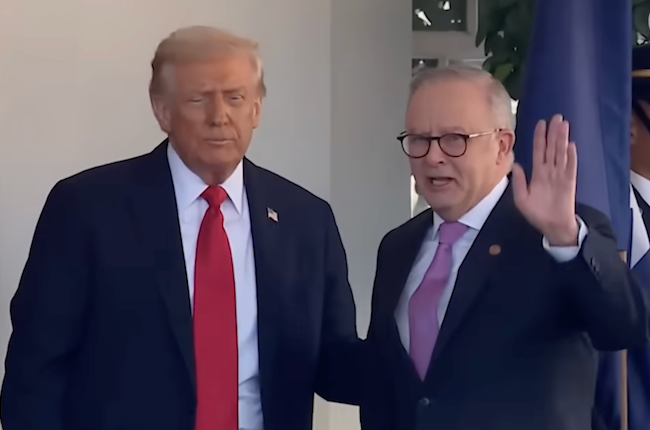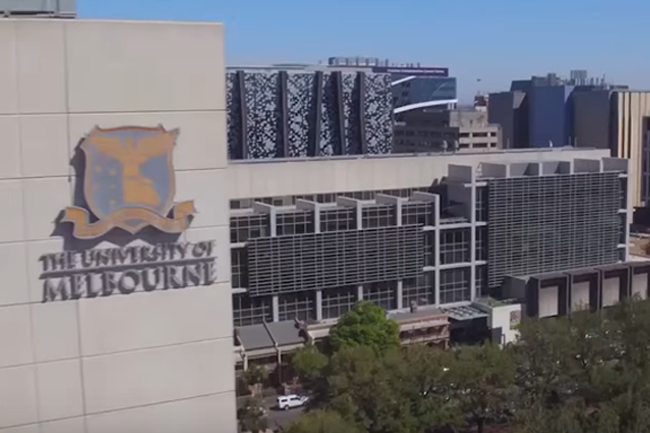A damning Senate report reveals the growing power, privilege and lack of accountability infecting Australia’s university system, writes Dr Kim Sawyer.
LAST WEEK, the Senate Education and Employment Committee reported on the governance of Australian universities. The report revealed a lack of transparency and accountability, and the sense of entitlement of a managerial class that has separated itself from the academics.
One submission to the Inquiry by Dr Lionel Page summed up the dissolution of our universities:
‘Between 1997 and 2017, the number of senior management positions... at Australian universities increased by over 110%, while middle management roles grew by 122%. In contrast, the number of support staff – those in direct administrative assistance to academic functions – declined by 70% over the same period.’
The report made 12 recommendations, most significantly:
- to publish minutes of university council meetings;
- publicly disclose spending on consultants;
- maintain a conflict-of-interest register for council members and senior executives;
- devise a mechanism to determine senior executives' remuneration; and
- set a minimum of members with public administration and higher education expertise on university governing bodies.
The recommendations are obvious. They were obvious 30 years ago.
There is an irony to the recommendation for higher education expertise on governing bodies. What constitutes higher education expertise? In most universities, the minimum requirement for a lectureship is a PhD, yet many of those governing our universities do not hold one. Some vice-chancellors do not hold a PhD; many chancellors are former politicians or donors.
The irony was illustrated in the composition of the Australian Universities Accord Committee, which reviewed higher education in 2024, only three of whom held a PhD and even fewer of whom had taught a course, supervised a student, or marked an exam paper in the last ten years.
Of course, a PhD is not the only measure of higher education expertise, but it would be nice to think those who review universities had some experience at the whiteboard in the last decade. The Accord made 47 recommendations. None of them addressed the issue of academic representation on university councils, the remuneration of senior management and consultants, or the demarcation between those who manage and those who produce the product for clients.
Like the governing bodies of universities, the Accord was beholden to outsiders.
The governance problems of universities stem from the Dawkins reforms that created self-regulating institutions lacking appropriate checks and balances. Self-regulation is not a substitute for real regulation. Dawkins established a C-grade system with F-grade regulation.
In a submission to the Senate Inquiry Universities in Crisis in 2001, I reflected that while the CEO of a public corporation is answerable to the board and to the shareholders, the vice-chancellors of universities had become unaccountable. They had created governance structures that depended on them rather than overseeing them. Nothing has changed in 25 years.
Consider the University of Melbourne, the highest internationally-ranked Australian university. The report reveals that the university has 15 executives earning more than Victoria’s Premier, yet the university was found by the Fair Work Ombudsman to have underpaid staff $72 million.
The previous Vice-Chancellor, Duncan Maskell, was paid $1.5 million but also earned $300,000 as a director of biotechnology company CSL, consistent with other vice-chancellors who hold externally paid positions. The previous chancellor, Allan Myers, donated $10 million to the university before being appointed Chancellor. The current Chancellor, Jane Hansen, joined her husband, Paul Little, in donating $40 million to the university prior to being appointed Chancellor. Money seems to matter.
Nonetheless, money can’t buy everything. The annual student experience survey has consistently shown University of Melbourne students to be dissatisfied. In 2021, University of Melbourne students were the least satisfied among 139 higher education institutions, with only 63% of them positive about the student experience.
Students understand better than most. In the first universities at Bologna, Pavia, Oxford and Cambridge, students played a role in the governance of the university. The corporate university has disenfranchised students to be customers rather than stakeholders. A statutory authority within universities needs to be established to allow students to have an advisory role on significant decisions in the university. Students as stakeholders should be resurrected.
Since 1994, I have appeared before five parliamentary inquiries, all of them connected in some way to the failure to regulate universities. I have learnt to have low expectations of inquiries. Recommendations often expire with the report. Words are cheap; outcomes are more expensive.
In 1995, the Senate Committee on Whistleblowing recommended an inquiry into what I raised. It didn’t happen. In 2001, the Senate Employment and Education Committee recommended the establishment of a university ombudsman. It didn’t happen. The politics of tokenism.
Politicians are as risk-averse as regulators. Universities are like banks; they are too big to fail. One regulator was more candid than others, describing universities as hermetically sealed. He was right. In 2001, a visiting Professor from Singapore told me he had been paid by an Australian university with a cheque drawn on a bank in the Cayman Islands. When I asked the regulator about this, he said, “No problem”.
And it was the same when another Professor told me a university had been enrolling the staff to cover a shortfall in enrolments. Again, no problem. Academics who blew the whistle saw the emerging governance problems. They were ignored. Money was too important.
I was a university whistleblower in two cases in the 1990s. In the first case, 16 academics, including me, raised financial concerns. Through resignations and dismissals, 12 were forced to leave the university. We were fortunate that in another faculty, and at the same time, the Dean, Professor James Scott, raised concerns of financial impropriety. He was also forced to leave.
Scott swore an affidavit on our behalf and the matter was settled in the Victorian Supreme Court. Professor Scott later became research director at the Cavendish Laboratory, University of Cambridge and was elected to the Royal Society as a distinguished physicist and nanoscientist. The Vice-Chancellor later became the Chairman of the Australian Universities Quality Agency. The separate paths of the academic and the manager.
In the second case at the University of Melbourne, a student made substantial offers, hundreds of thousands of dollars in consultancies, to staff lecturing him, often just prior to examinations. He also offered a substantial donation to the university, negotiated by the Dean of the faculty.
Two lecturers told me of the offers and I sought advice from a senior academic. He initiated an inquiry, but I was labelled the whistleblower. An internal report exonerated the student and the staff who had negotiated with him, yet the Vice-Chancellor told me a different story: “The Dean made a terrible mistake and that the student was...” I asked to be protected, but wasn’t. The Dean removed me as Associate Dean.
Nothing seems to have changed. A recent case at the University of Sydney echoes the 1990s. One of Australia’s most eminent neuropathologists, Professor Manuel Graeber, was dismissed after making a public interest disclosure. The case shows the need for an ombudsman with the independence to regulate fairly, otherwise, there will be more Professors Scott and Graeber. The loss to Australia will be significant.
In May 1974, I scrutineered for John Dawkins when he was first elected to the Federal Parliament in the electorate of Tangney. We were members of the Labor Party branch at the University of Western Australia. I appear to have been scrutineering for Dawkins ever since.
The Dawkins reforms that were designed to create a system with greater opportunity instead created a system with greater opportunity for some, but far less opportunity for so many others. The C-grade system, where the only As are awarded to those who can raise the most money.
We should hope the Senate Education and Employment Committee makes its words count. Otherwise, its recommendations will die as other recommendations have died.
Dr Kim Sawyer is a retired Associate Professor, University of Melbourne.
 This work is licensed under a Creative Commons Attribution-NonCommercial-NoDerivs 3.0 Australia License
This work is licensed under a Creative Commons Attribution-NonCommercial-NoDerivs 3.0 Australia License
Support independent journalism Subscribe to IA.

Related Articles
- Universities Trumped by political interference
- Beyond ANU: Rethinking Australia’s university funding crisis
- Australian universities being hijacked by corporate elites
- Unchecked vigilante violence on campus smacks of ambient fascism
- Money-mad universities fail to stop violence against protesters














